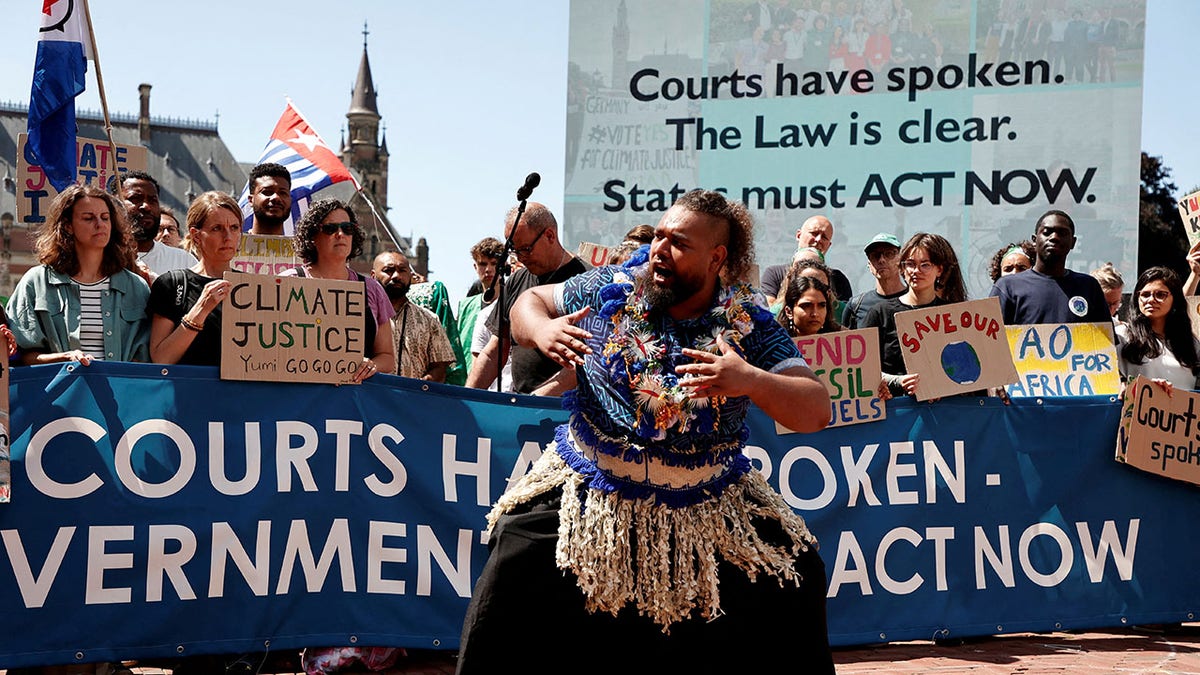Articles in this Cluster
24-07-2025
The International Court of Justice (ICJ) has ruled that countries can sue each other over climate change, including for historic emissions of greenhouse gases. The non-binding decision is seen as a victory for vulnerable countries that have been frustrated by the lack of global progress in tackling climate change. The court said that countries have a responsibility to protect the environment and that failing to develop ambitious plans to tackle climate change could be a breach of their Paris Agreement promises. The ruling could pave the way for compensation claims from countries that have been most affected by climate change, with estimated losses between 2000 and 2019 totaling $2.8 trillion. The decision is advisory, but previous ICJ decisions have been implemented by governments, and lawyers say it could be used in national courts as early as next week.
24-07-2025
The International Court of Justice (ICJ) has issued a unanimous advisory opinion stating that countries have a duty to prevent significant harm to the environment and can be held accountable for greenhouse gas emissions. The ICJ ruled that existing environmental treaties and international human rights law obligate countries to protect the climate and compensate those harmed by climate change. The decision was sought by Vanuatu, a Pacific island nation disproportionately affected by climate change despite being responsible for less than 0.0004% of global cumulative greenhouse gas emissions. While the opinion is not legally binding, it may set a precedent for climate change cases worldwide, potentially influencing countries and corporations to take greater responsibility for their emissions.
24-07-2025
The United Nations' highest court, the International Court of Justice, has ruled that wealthy nations must comply with their commitments to reduce fossil fuels and pollution or risk being held financially liable for damages caused by climate change. The court stated that treaties compel rich nations to curb global warming and that they are also responsible for the actions of companies under their jurisdiction or control. Failure to comply could result in "full reparations to injured states" in the form of restitution, compensation, and satisfaction. The ruling was hailed by small nation states and climate activists, with U.N. Secretary-General Antonio Guterres saying it affirms that Paris climate agreement goals should be the basis of all climate policies.
24-07-2025
The International Court of Justice (ICJ) has ruled that countries failing to protect the planet from climate change may be in breach of international law and could be liable for reparations. The landmark ruling, in the world's biggest ever climate court case, involved 96 countries and was sparked by a campaign by law students from Vanuatu. The court said a "clean, healthy and sustainable environment" is a human right, paving the way for countries to take each other to court for breaching that duty. Campaigners hailed the non-binding advisory opinion as a "tremendous victory" and a new era for climate accountability, potentially opening the door for new types of lawsuits and reparations for climate damages.
24-07-2025
Australia may face international legal action over its fossil fuel production and failure to cut emissions, according to Vanuatu's climate change minister, following a landmark ruling by the International Court of Justice (ICJ). The ICJ found that countries have a legal obligation to prevent climate change and limit global heating to 1.5C above pre-industrial levels, and that high-emitting countries that fail to act could be liable to pay restitution to low-emitting countries. The ruling was hailed as historic by Pacific island representatives and climate campaigners, who say it gives them greater leverage in climate talks and dealing with partner countries like Australia. Australia's government said it would carefully consider the court's opinion, while climate experts and lawyers say the ruling has significant implications for Australia's climate policy and fossil fuel industry.
